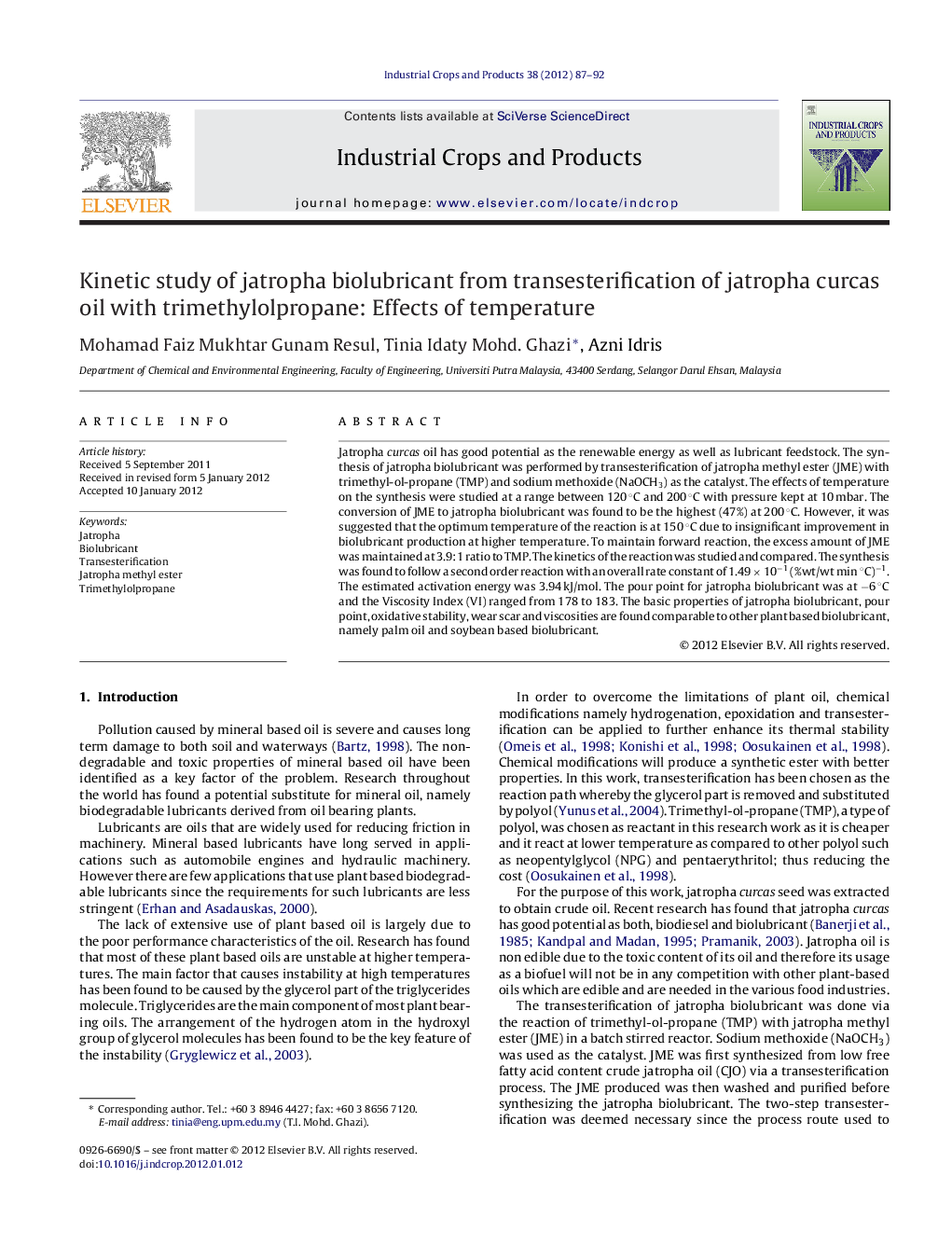| Article ID | Journal | Published Year | Pages | File Type |
|---|---|---|---|---|
| 4514288 | Industrial Crops and Products | 2012 | 6 Pages |
Jatropha curcas oil has good potential as the renewable energy as well as lubricant feedstock. The synthesis of jatropha biolubricant was performed by transesterification of jatropha methyl ester (JME) with trimethyl-ol-propane (TMP) and sodium methoxide (NaOCH3) as the catalyst. The effects of temperature on the synthesis were studied at a range between 120 °C and 200 °C with pressure kept at 10 mbar. The conversion of JME to jatropha biolubricant was found to be the highest (47%) at 200 °C. However, it was suggested that the optimum temperature of the reaction is at 150 °C due to insignificant improvement in biolubricant production at higher temperature. To maintain forward reaction, the excess amount of JME was maintained at 3.9:1 ratio to TMP. The kinetics of the reaction was studied and compared. The synthesis was found to follow a second order reaction with an overall rate constant of 1.49 × 10−1 (%wt/wt min °C)−1. The estimated activation energy was 3.94 kJ/mol. The pour point for jatropha biolubricant was at −6 °C and the Viscosity Index (VI) ranged from 178 to 183. The basic properties of jatropha biolubricant, pour point, oxidative stability, wear scar and viscosities are found comparable to other plant based biolubricant, namely palm oil and soybean based biolubricant.
► Research focused on the production of jatropha biolubricant via transesterification. ► Reaction kinetics obeyed second order reaction with the effects of temperature. ► Thermal stability studied indicates lubricant degradation at higher temperature. ► Lubricating properties comparably meet ISO oil grades for light gear application.
